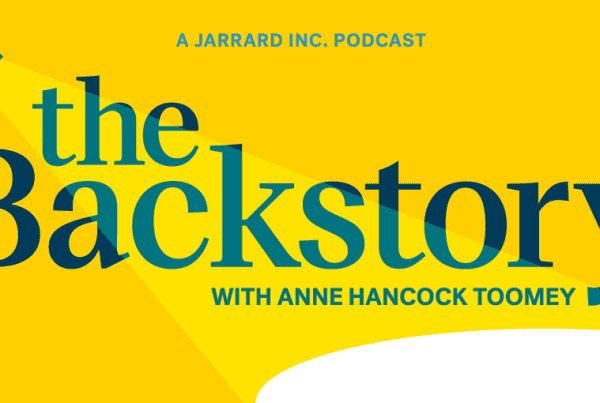The Big Story: Why the health care lobby failed to stop cuts to Medicaid funding
“Hospitals have argued for decades that any cuts in federal funding to Medicaid or Medicare would harm patients and lead to service reductions. Because hospitals are usually one of the largest employers in a congressional district, industry leaders often also warn of potential job losses. Such arguments typically give lawmakers pause. But this time around, that message had little traction.”
Words Failed Us
By David Jarrard
3-minute read
Against the passage of the Big Beautiful Bill, the healthcare industry deployed heavyweight messengers to launch its full rhetorical arsenal. Using words such as “unprecedented” and “polycrisis.” Declaring “Hospitals will close.” “Services will disappear.” “Jobs will be lost.” “Communities will suffer.” “People will die.”
And the bill passed.
The furious strength those linguistic punches once carried was shrugged away like puffs of air.
Healthcare faces not just a financial crisis, but a crisis of narrative, too.
Like the boy who cried wolf, our industry has sounded its alarms so often, so reflexively, that our once-powerful points have lost their sting.
Healthcare has been in a “crisis” for years. Crises beyond count. A workforce crisis. A burnout crisis. A rural hospital crisis. A behavioral health crisis. A capacity crisis. A reimbursement crisis. A trust crisis.
And these are all, to varying degrees, true. No shade thrown.
But what happens when our audiences no longer hear urgency in our cries – only ignorable noise? When our danger words reach what researchers call “semantic satiation?”
Well, we just found out.
The industry says disaster looms, but construction cranes – and stock valuations – keep rising. One might be forgiven for being numbed by the cognitive dissonance.
When we ask the American public which matters more to hospitals – caring for patients or making money – making money wins by a landslide.
Why will they care if they think you don’t?
Maybe there is no wolf, after all.
The Limits of Alarm Bells
But wait. Healthcare isn’t the first industry to wrestle with narrative exhaustion. Consider climate change.
For decades, activists and scientists sounded the alarm with ever-escalating language: “tipping points,” “existential threat,” “climate emergency.” A 2021 UN report declared a “code red for humanity.” Still, public will and policy lag. While alarms get attention, they do not necessarily inspire action. Over time, repeated catastrophes can harden into fatalism – or worse, apathy.
Psychologists call it “climate doomism,” the sense that we’ve already lost and that, as a result, nothing we do matters. It’s fueled not by denial, but by a surfeit of bad news with too little sense of individual agency.
For climate and healthcare, grim global predictions alone are insufficient.
People need the big crisis made small; brought close to home with something they can do to make it right. It’s the power of the specific.
From Crisis to Credibility
The first step is to acknowledge crisis fatigue (and you’re probably tired of it, too). Yelling ‘crisis’ louder or slower or both gains us little. We need language that’s specific, grounded, human and true.
We must confront a hard truth, too. When we use crisis language without visible consequences or clear stories, we erode trust.
The legislation passed. Hard choices must now be made. The consequences – as promised, as predicted – are becoming real.
And that’s the new story – the shift from warnings to impact. It’s a hard pivot from rhetoric to receipts.
Getting Real
What does “getting real” look like?
Again, it looks like specificity. Instead of saying “Services will be lost,” we say: “This rural hospital in Calhoun County will close its OB unit in August. That means pregnant women will now drive 90 minutes to deliver a child—or go without care altogether.”
Instead of “This threatens access,” we say: “This bill forced Riverview Medical to lay off 43 nurses, including the entire weekend behavioral health shift. That unit now sits dark on Sundays.”
It means naming names and showing faces. Putting the real human cost of abstract decisions into the light and linking it – with a solid line – to the bill or a policy change. Connect the dots from policy to people.
You know who the messengers are. They’re not just system CEOs, but nurse managers, EMTs, pediatricians, physicians and the patients themselves. The closer to the ground, the more authentic the story becomes.
And on the hierarchy of trusted messengers, white coats and scrubs rule. They have unmatched credibility. But they will not self-activate; they will not launch themselves into the community conversations your organization needs now. You must equip them, empower them and engage them in this hard, grassroots seeding.
To be clear, this isn’t about spin. It’s about reestablishing narrative credibility through lived truth. It’s about anchoring policy critique in consequences – not just principle.
A Better Story
We can take a cue from climate communicators who are reimagining their message. Enter “apocalyptic optimism” – the belief that while the challenges are dire, meaningful action is still possible. That’s agency, not just agony. That transformation is hard, but not hopeless.
Healthcare could use a dose of that. The goal isn’t to sugarcoat reality, but to offer a compelling future people can actually believe in and fight for.
We won’t get there by defaulting to hyperbole or summoning yet another crisis headline. We’ll get there by telling real stories about what these policies actually do. About who’s affected. About where the pressure points really are.
We’ve tried shouting “wolf” from the hill. Now, the wolf is in the village. It’s time to stop yelling and start pointing.
Use your words.
As pressures mount, healthcare providers are facing high-stakes decisions. Managing difficult change includes having a strategic partner to help communicate critical decisions and gain alignment with their various stakeholders. We can help.
Contributors: Isaac Squyres, Tim Stewart, Emme Nelson Baxter
Image credit: Shannon Threadgill




